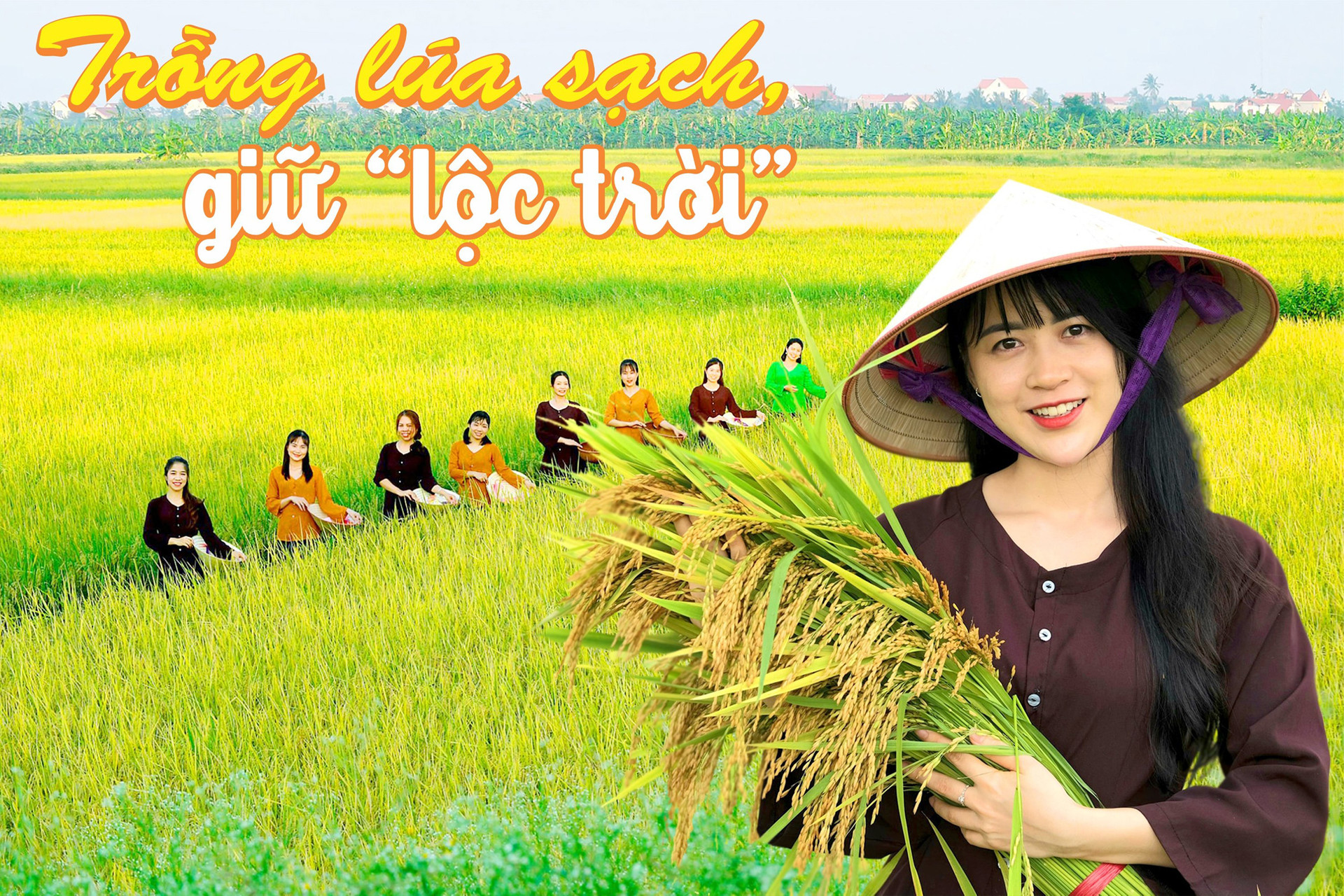
On fertile fields, the idea of green, chemical-free farming has gradually permeated the thinking and working methods of many farmers in Tu Ky. To preserve the earthworms and crabs, organic rice fields are expanding, and the organic rice product of earthworms has also become a local brand.
20 years ago, on the alluvial plains along the Thai Binh River in Tu Ky District, farmers often planted a crop of rice seedlings and a few other low-yielding native rice varieties to harvest the earthworms in the next crop. The rice produced had no buyers, it was only used as animal feed.
Seven years ago, the Director of An Thanh Commune Agricultural Service Cooperative, Pham Xuan Luan, and Mr. Nguyen Van Tuan, a native of Thanh Ky village, visited the fields every day to observe and take notes. No one knows what they were calculating, but just a few months later, the land of An Dinh village (in the same An Thanh commune) had changed. Some Japanese engineers and scientists from Hanoi Agricultural University I (now Vietnam Agricultural Academy) came to guide farmers on the process of intensively cultivating new rice varieties in an organic direction.
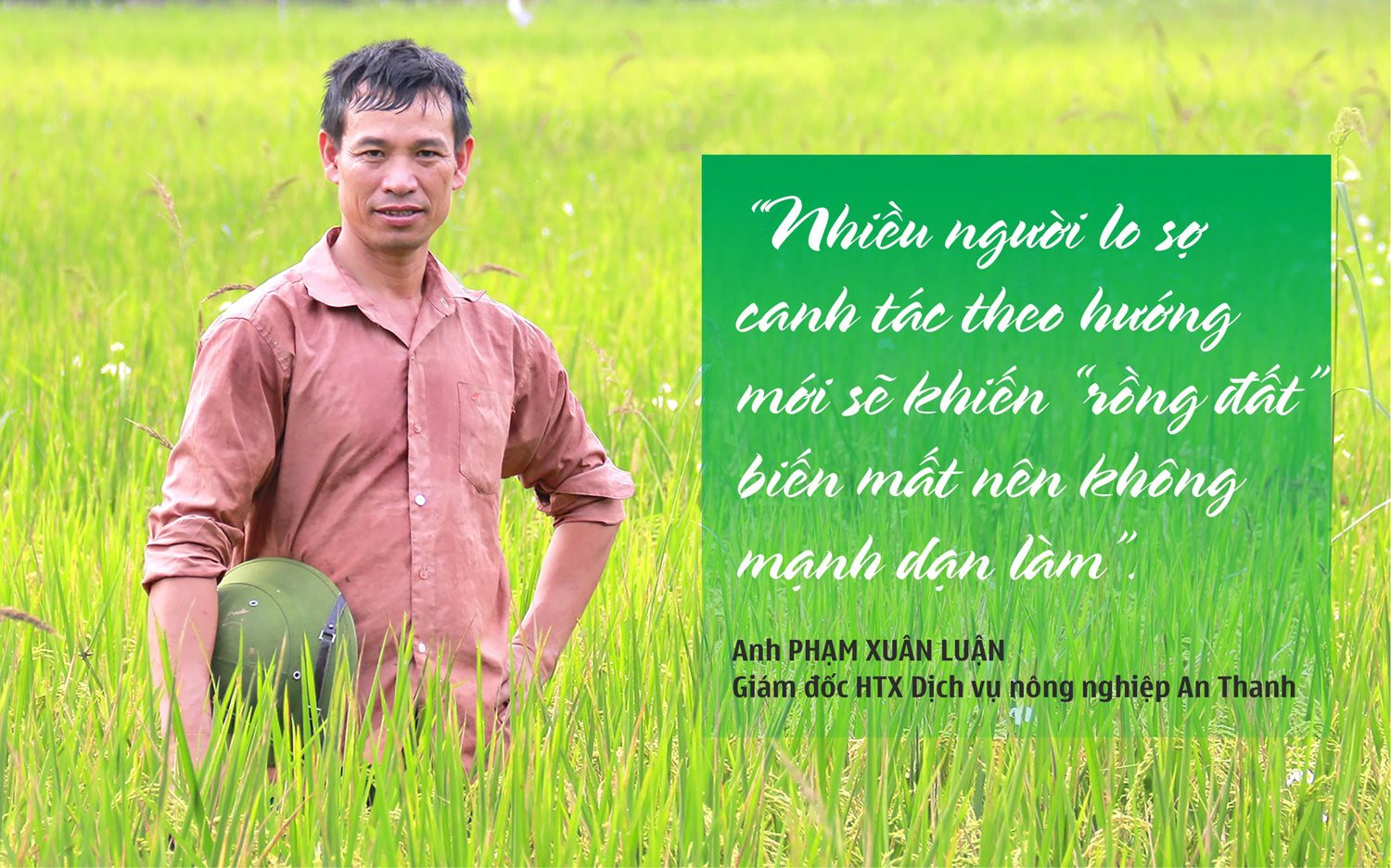
Mr. Luan said that on the first day of introducing the new rice variety to An Thanh fields, everyone was hesitant because the practice of planting rice seedlings for many years was difficult to abandon. Many people feared that cultivating in a new way would cause the "dragon of the land" to disappear, so they did not dare to do it.
Thanks to the determination and dedication of people like Mr. Tuan, Mr. Soi, Mrs. Da, Mr. Thuong... the organic rice growing area in Tu Ky gradually took shape.
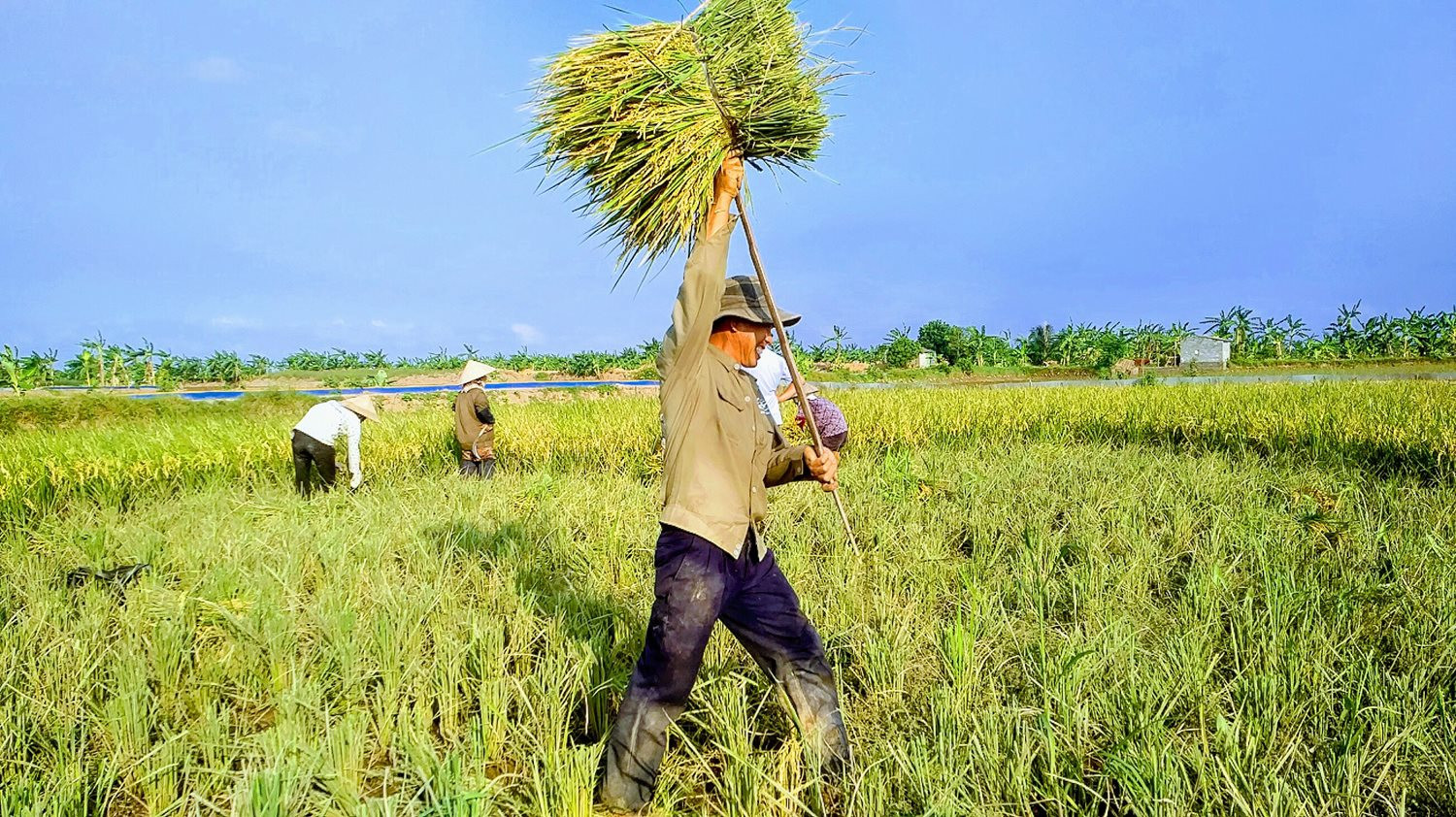
Now, chemical-free agriculture has become the farming motto of the people in the sandbank area. The pioneering farmers have become living witnesses for people in many other areas of the district to confidently continue expanding the area of organic rice. New rice varieties J01, J02 and ST25 have been effectively cultivated on the land here.
Mr. Nguyen Anh Tuan, Head of the Department of Agriculture and Rural Development of Tu Ky district, affirmed that organic rice production is the right direction for An Thanh and many other localities of Tu Ky district. Thanks to the pioneers, the area of organic rice in the locality is constantly expanding. In the winter-spring crop of 2023, the district has more than 450 hectares of organic rice, the largest in the province. Not only renewing land and finding effective farming directions, Mr. Luan and Mr. Tuan also help people connect with businesses to purchase organic rice at high prices.
An Thanh's rươi area has also been recognized by the TQC Quality Testing and Certification Center (Vietnam Union of Science and Technology Associations) for products produced in accordance with the National Organic Agriculture Standards. Rươi beach organic rice is a 3-star OCOP product.
"Organic production is a good way for Tu Ky farmers not to lose their "heavenly gift". The worms can only live in a clean environment, without chemicals". Mr. Pham Dinh Soi, who has many years of experience in intensive organic rice cultivation and exploitation of worms in An Dinh village, firmly affirmed this because he himself had to "taste the bitter fruit" when he regretted that the rice was diseased and used pesticides to kill it, and the result was a failure in that year's rươi crop. Mr. Soi said: "Without organic rice cultivation, it is difficult to keep the rươi alive".
Tu Ky people cultivate organic rice for one crop to create a good environment for the development of earthworms and clams. Dr. Pham Dinh Trong, Institute of Tropical Ecology and Environment, has been to the locality to conduct research and clearly sees that a clean environment is an important factor in maintaining and developing the earthworm area. During the implementation of the project "Research on the conservation of earthworm resources and the development of community-based earthworm exploitation in brackish water areas of Hai Duong province", he also pointed out to farmers the main reason for the sharp decline in earthworm production in Tu Ky.
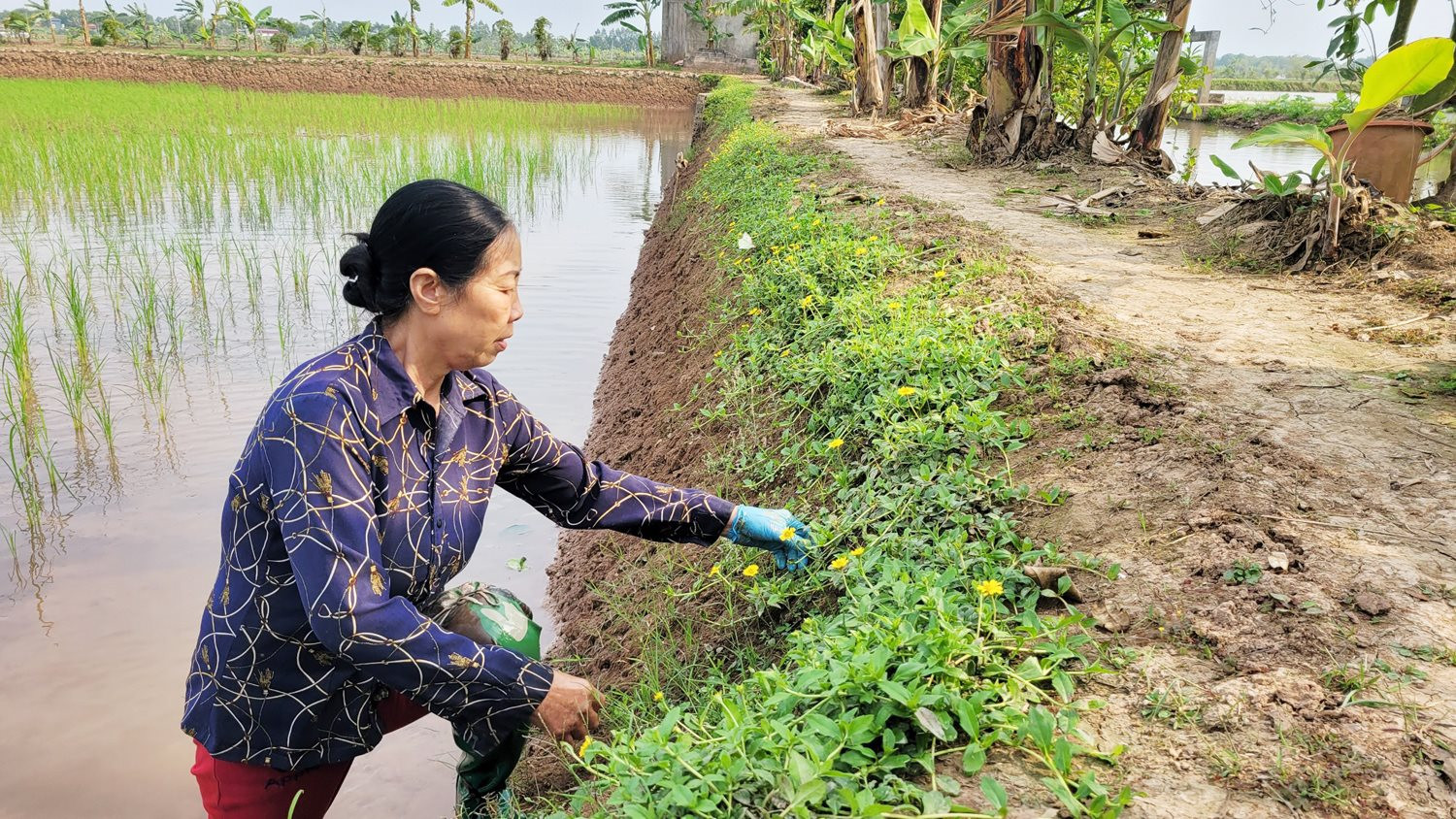
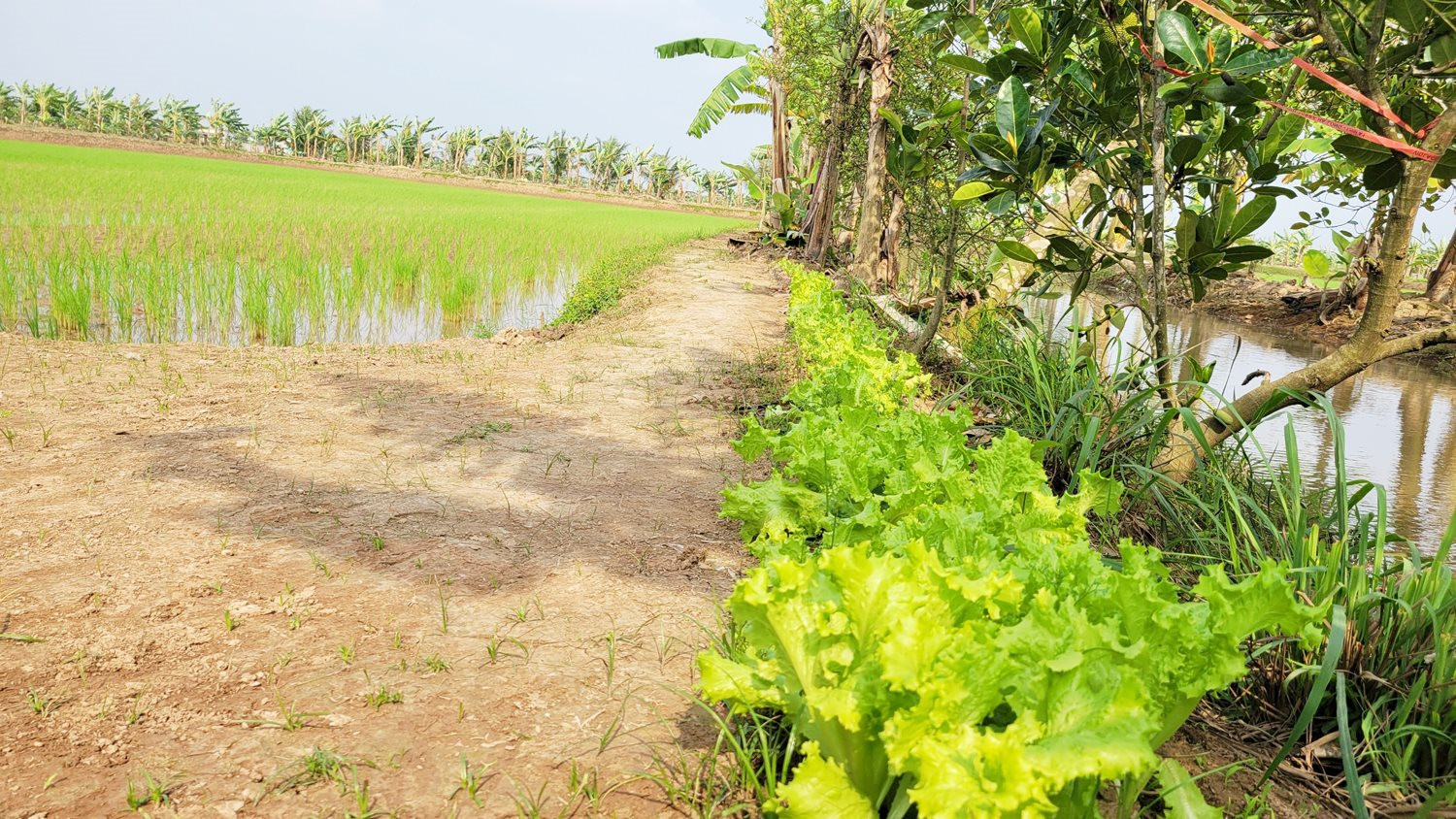
Seeing the negative impacts of unsustainable agricultural production and dependence on chemicals, farmers in Tu Ky always say no to pesticides in rice cultivation. Fertilizers must also be organic compost or microbial fertilizers. Farmers are applying the IPM (environmentally friendly integrated pest management) planting and pest management method. Planting sparsely and according to the right technique. Notably, on the rice fields are colorful flower patches to attract natural enemies and protect crops. The flower-bordered rice field model has contributed to significantly reducing pests and diseases in crops.
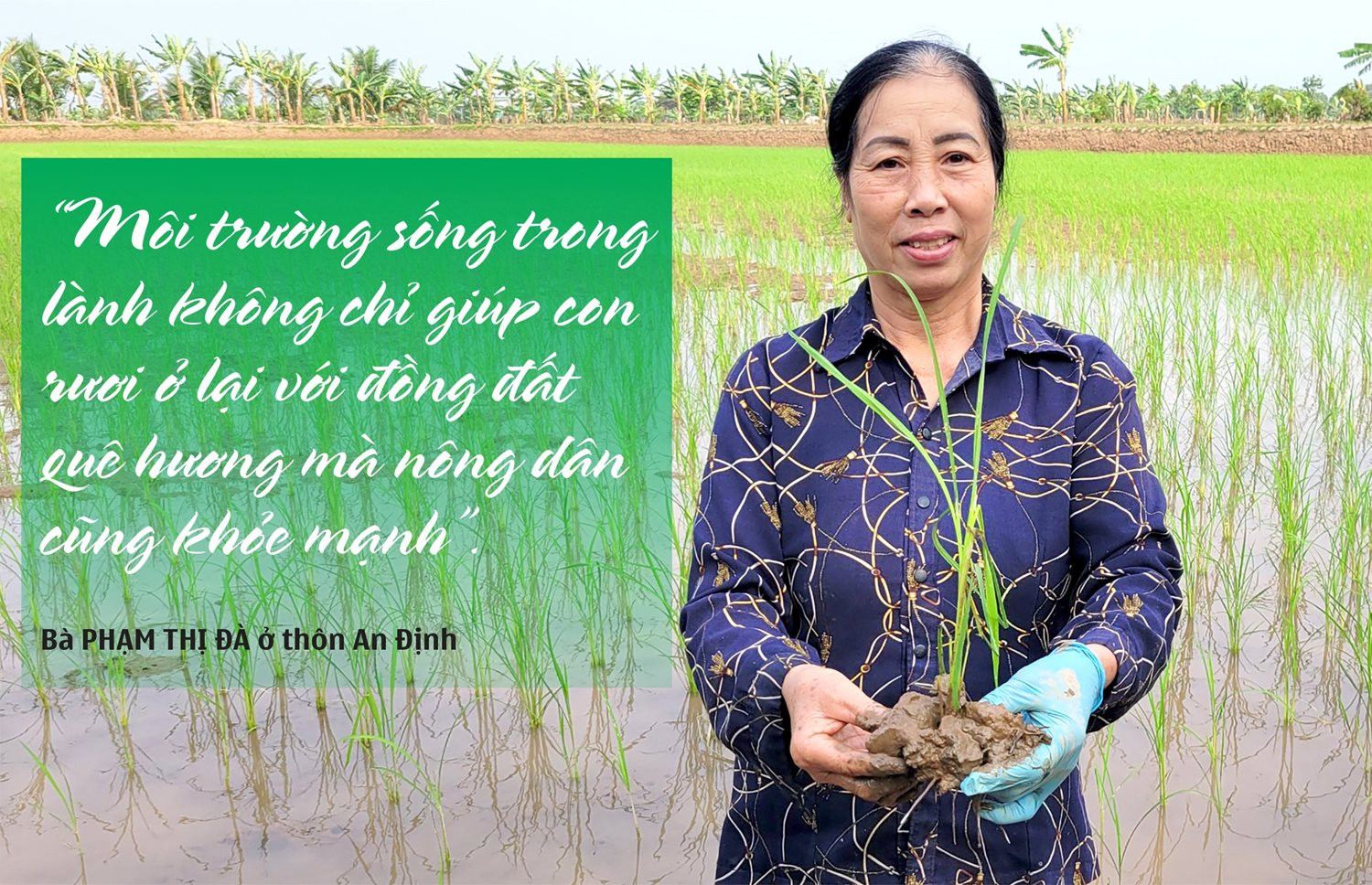
Ms. Pham Thi Da in An Dinh village said: “Now we weed by hand, with a rake, and fertilize with composted biofertilizer. A clean living environment not only helps the earthworms stay in their homeland but also helps farmers stay healthy.”
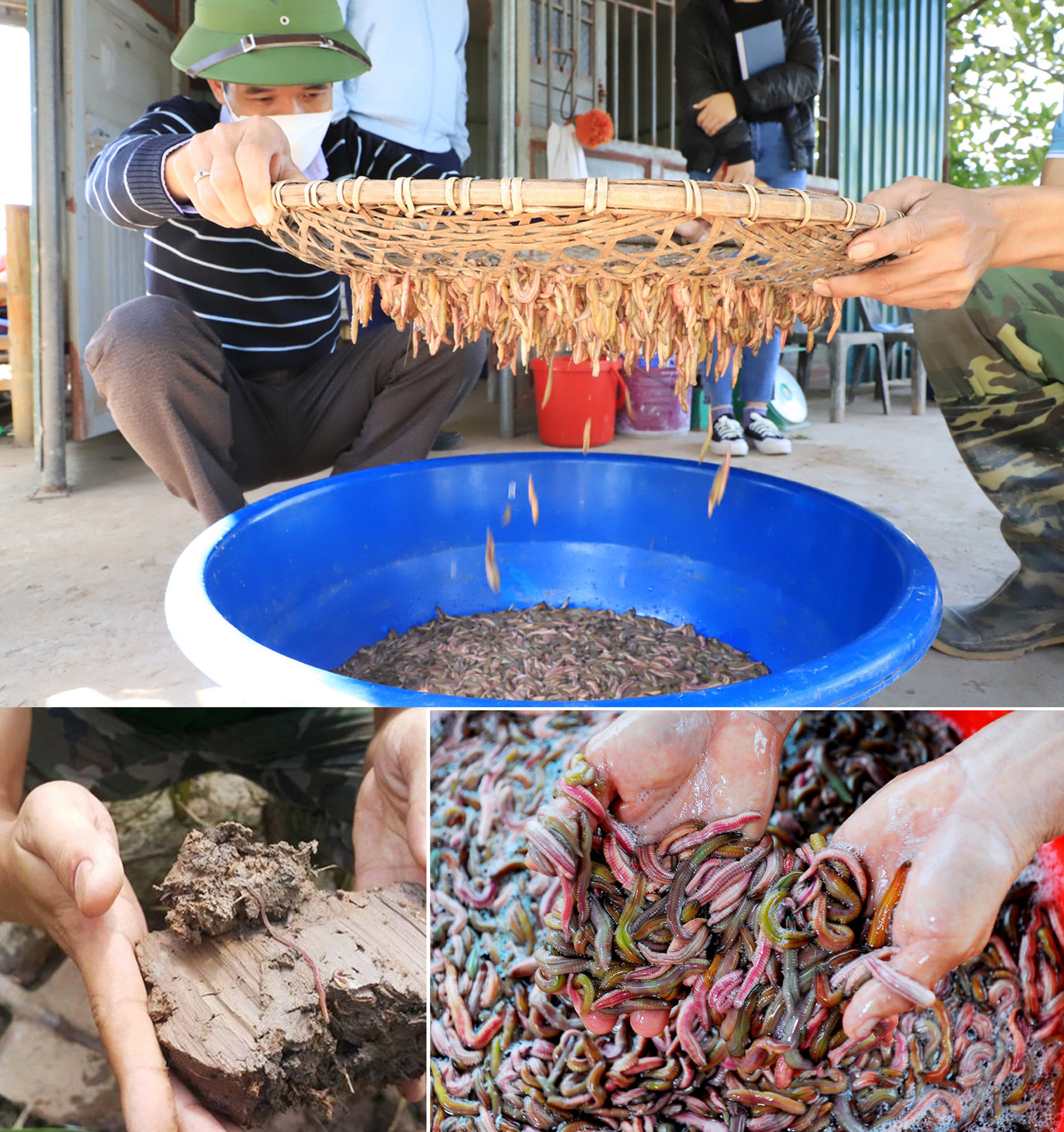
The efforts and changes of farmers in the rươi field in Tu Ky have been rewarded when the annual rươi output has increased significantly. In 2022, the rươi output in Tu Ky reached approximately 250 tons, an increase of more than 40 tons compared to the previous year's rươi crop. The productivity, output as well as the value of organic rice are constantly increasing. Now, all organic rice produced is purchased by businesses right at the field at high prices.
The desire to develop organic rice does not stop there. Mr. Nguyen Van Tuan, Director of New Generation Agriculture Joint Stock Company, a native of An Thanh, shared his idea: “OCOP certified Bai Ruoi rice is a boost for us to bring our products further. It is not only delicious bowls of rice with the clean rice brand but also products made from Bai Ruoi organic rice. I had to spend nearly 100,000 VND to buy a pack of organic rice snacks for my child imported from Japan. So why don't we produce similar products ourselves to serve domestic consumers at reasonable prices. We can even consider exporting these products.”
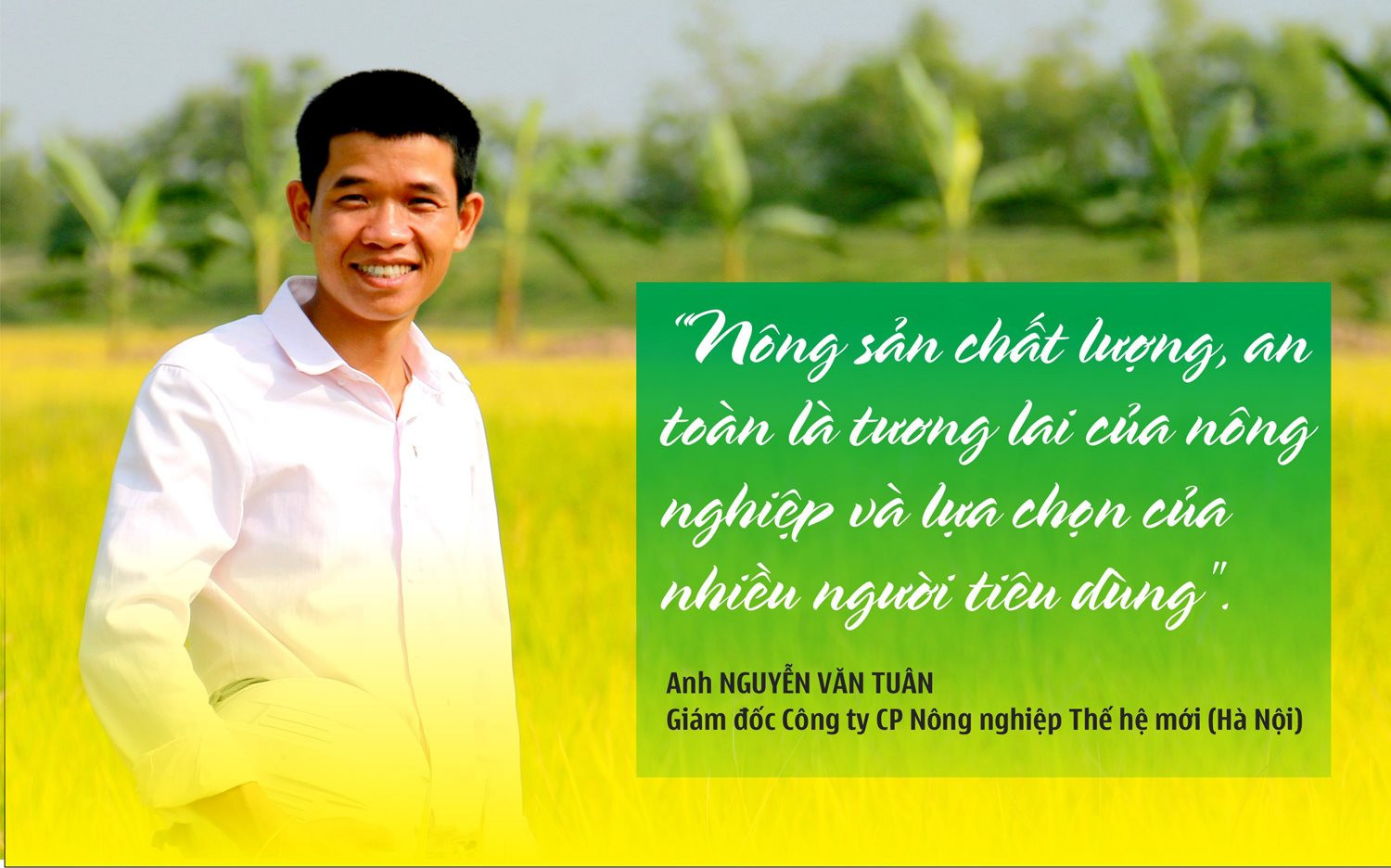
Mr. Tuan and the Director of An Thanh Agricultural Service Cooperative are gradually planning to realize their idea. Mr. Tuan said: "In the future, we will cooperate to process vermicelli, cakes and other products from organic rice. But first, we must help people have a good income from their own land and stick with this farming method to be able to successfully implement that idea."
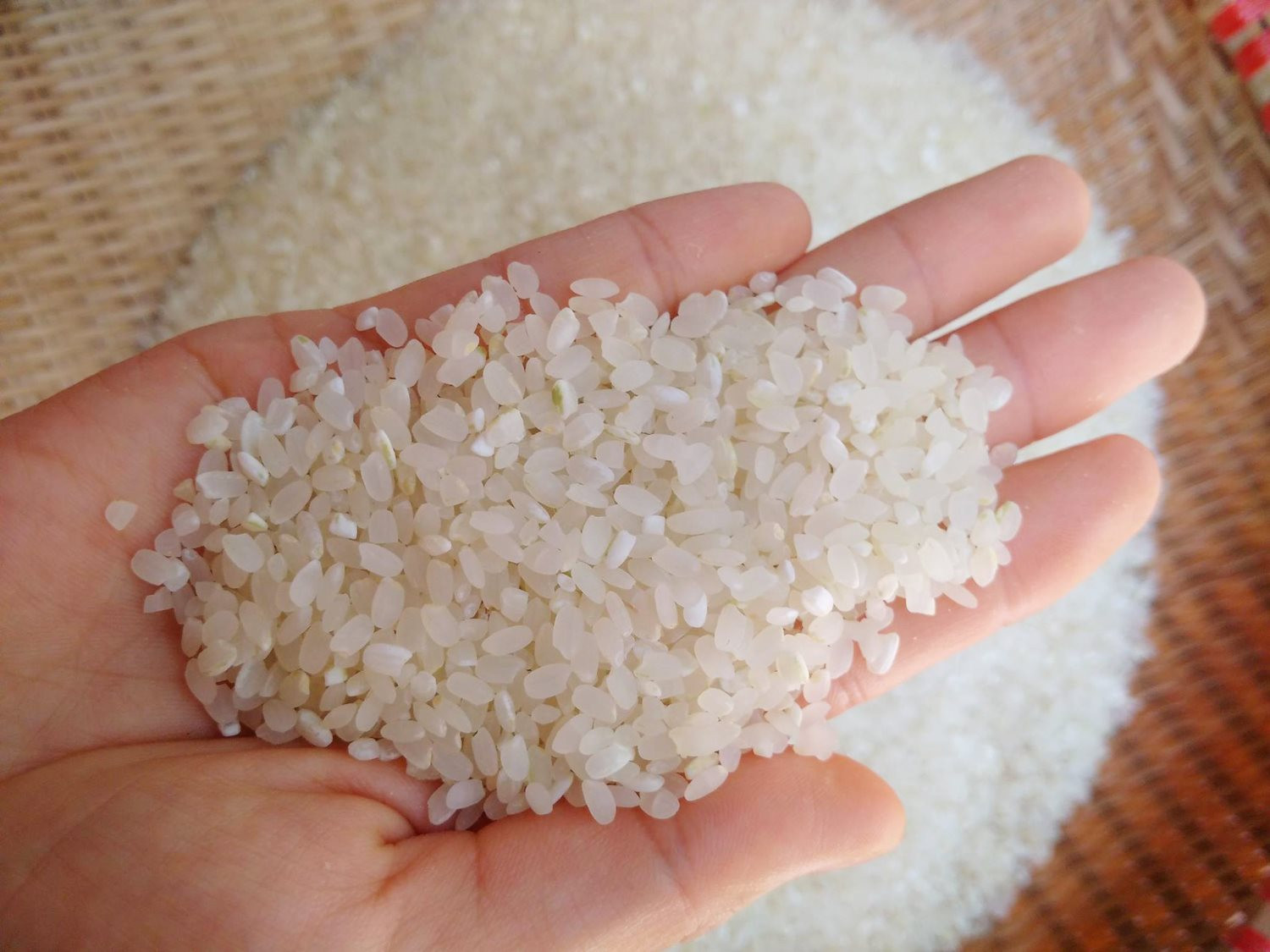
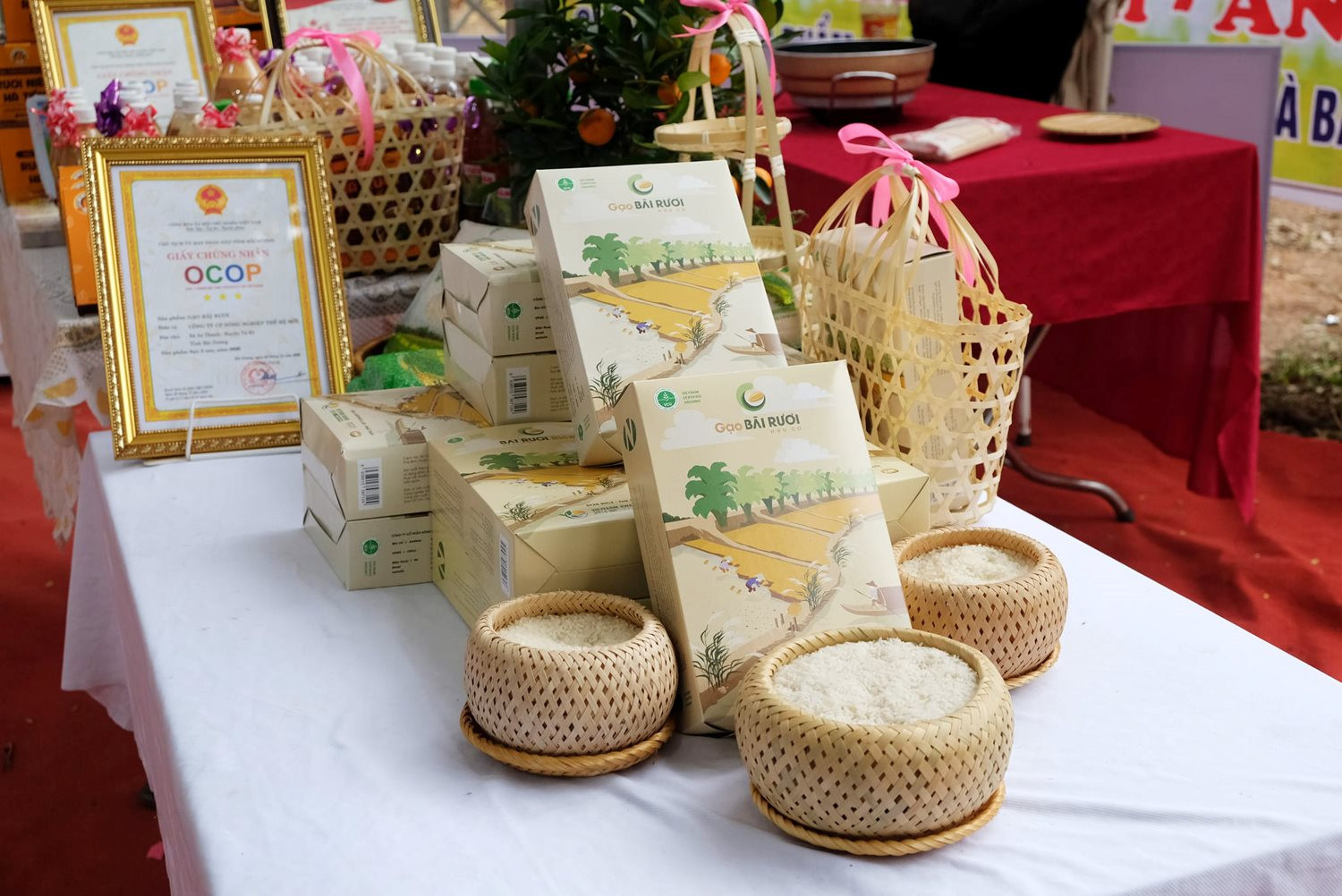
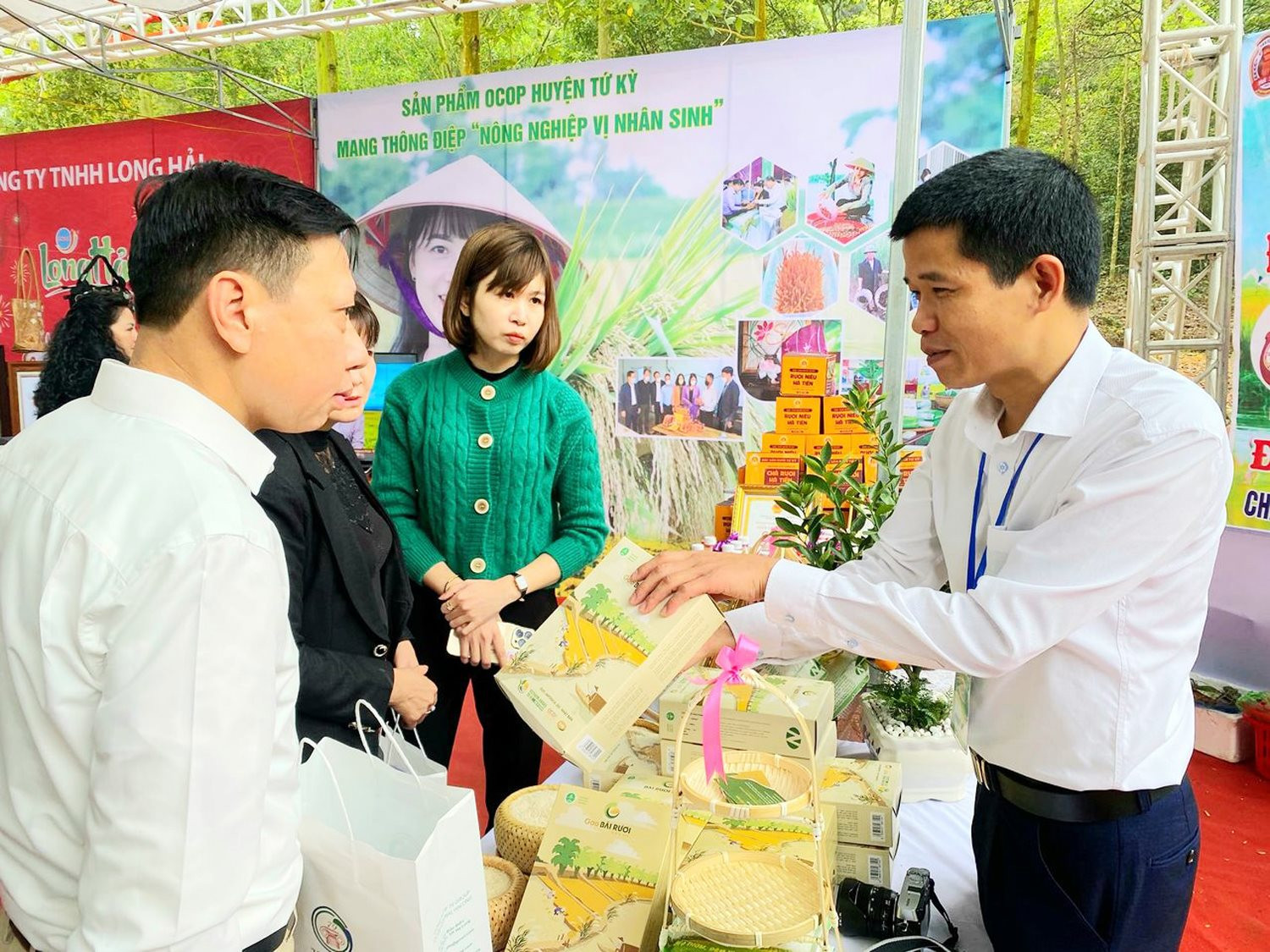
Organic rice production in An Thanh in general and Tu Ky in particular is the right direction, receiving active support from local authorities. The Resolution of the 25th Tu Ky District Party Congress for the 2020-2025 term also identified promoting the development of organic agriculture as one of the breakthroughs. The district has developed a project to develop concentrated commodity agriculture according to the value chain, applying high technology, organic agriculture to ensure food hygiene, and connecting with the consumer market. Focus on researching support mechanisms for infrastructure and technology, creating the most favorable conditions for the development of organic production, in which organic rice is the main product.
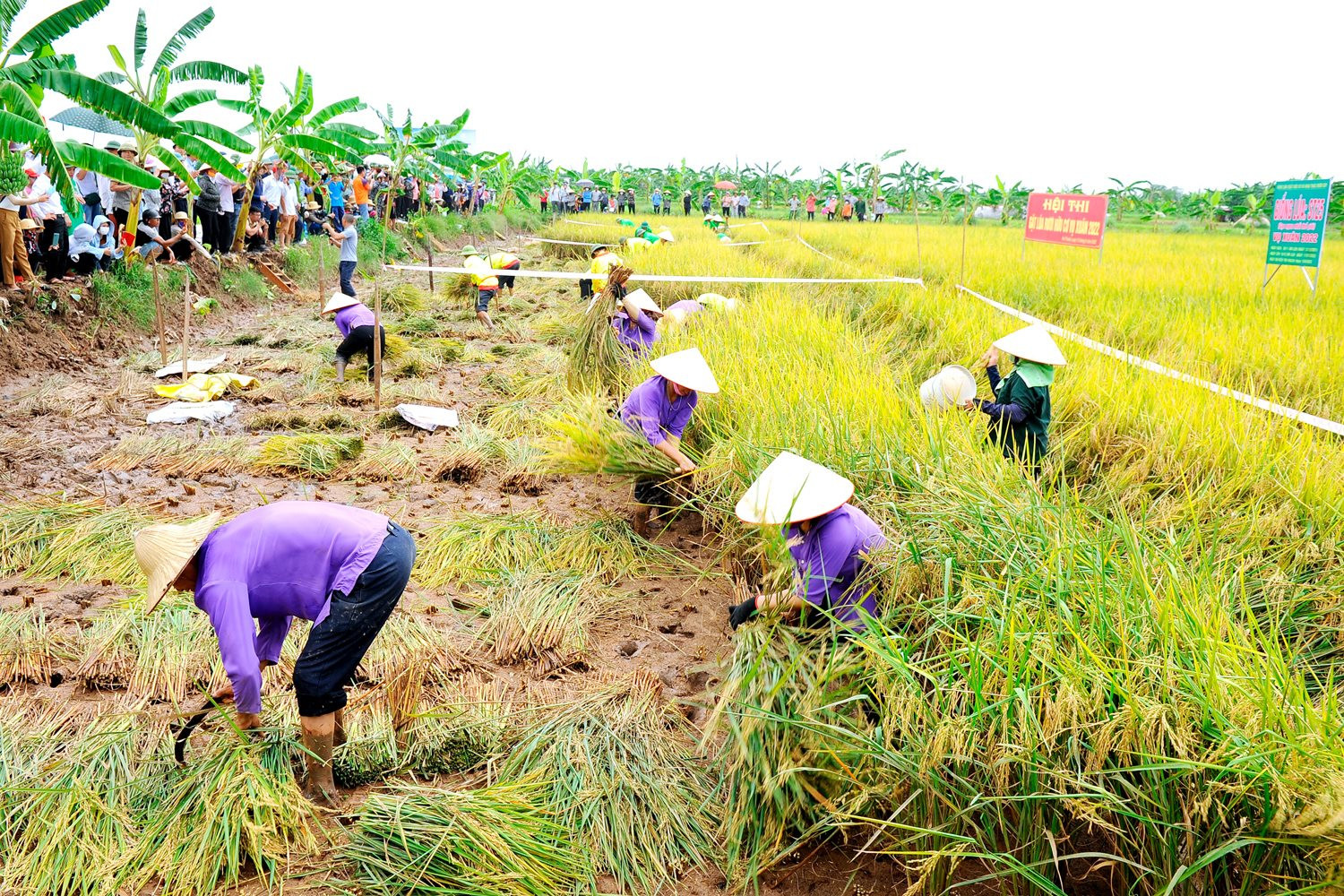
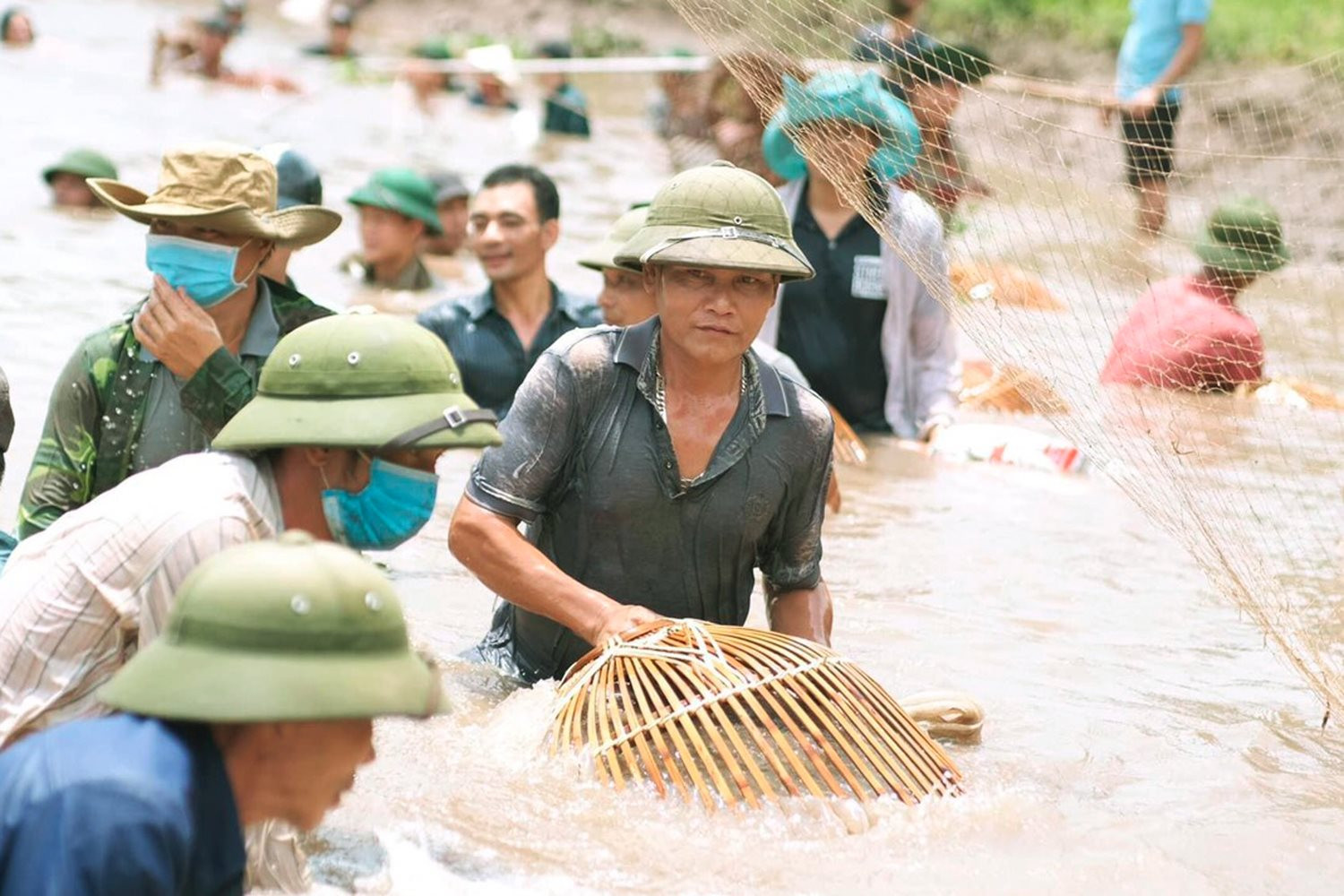
In addition to exploiting organic rice, earthworms, and clams, Tu Ky district is also looking for ways to develop eco-tourism to exploit local agriculture in a multi-layered, multi-value direction. With determination and consensus, Tu Ky's agricultural "gold mine" is expected to be well exploited.
d
Content: LAN ANH
Graphics: PHUNG BAN